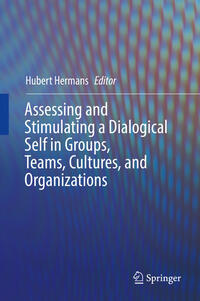
This book presents 9 theory-based and practice-oriented methods for assessing and stimulating a multi-voiced dialogical self in the context of groups, teams, cultures, and organizations. All of these methods are based on Dialogical Self Theory. The book deals with the practical implications of this theory as applied in the areas of coaching, training, and counselling.  A number of chapters focus on the process of positioning and dialogue on the level of the self, while other chapters combine self-processes with group work, and still others find their applications in leadership development and team-work in organizations. For each of the nine methods, the chapters present theory, method, case-study and discussions and make clear what kind of problems can be tackled using the method discussed. Specifically, the book discusses the following methods: A Negotiational Self Method for assessing and solving inner conflicts; a Self-Confrontation Method used toassess and stimulate personal meaning construction in career counselling; a Method of Expressive Writing in the context of career development; a Composition Method for studying the content and organization of personal positions via verbal and non-verbal procedures; a Dialogical Leadership Method that investigates and stimulates dialogical relationships between personal positions in the self of leaders in organizations; a Personal Position Repertoire Method that combines the assessment of personal positions with focus group discussions; a Team Confrontation Method for investigating collective and deviant positions or voices in organizational teams; a Method for Revising Organizational Stories with a focus on their emotional significance: and a Technique for Assessing and Stimulating Innovative Dialogue between Cultural Positions in global nomads.